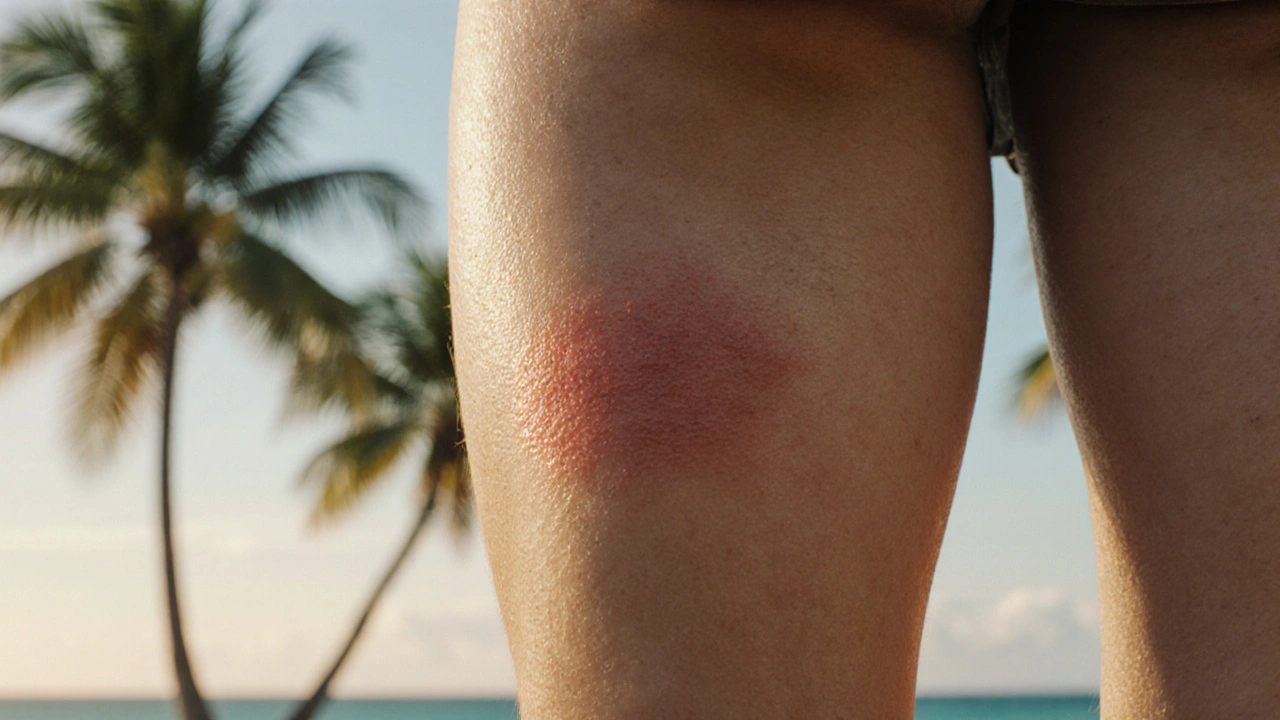Feeling sticky, tired, or short of breath when the air is hot and humid? You’re not alone. High humidity makes the body work harder to cool down, and it also messes with how some medicines stay stable. Below you’ll find easy steps to keep yourself comfortable, protect your meds, and lower the risk of heat‑related illnesses.
First, drink water often. Aim for at least eight glasses a day, more if you’re active. If you can’t carry a bottle, sip a little every 15 minutes. Next, dress in light, breathable fabrics—cotton or linen are best. Dark colors absorb heat, so choose light shades wherever possible.
When you’re indoors, use a fan or air‑conditioner if you have one. If the AC is off, a bowl of ice in front of a fan can create a quick cooling breeze. Take short, shaded breaks if you have to be outside. A 10‑minute rest every hour can keep your core temperature from climbing too high.
Watch for warning signs of heat exhaustion: heavy sweating, weakness, headache, or nausea. If you notice these, move to a cooler spot, drink water, and apply a cool, damp cloth to your neck and wrists. If symptoms get worse—like confusion or vomiting—seek medical help right away.
Heat and humidity can break down certain pills, creams, and liquids faster than normal. Store tablets in a dry, airtight container rather than a bathroom cabinet where steam gathers. If a medication label says “keep below 30 °C,” treat that as a hard limit; a hot car trunk can easily exceed it.
Liquid antibiotics, insulin, and hormone creams are especially sensitive. Keep them in a refrigerator if you have one, or at least in a cooler bag with an ice pack during travel. Before you start a trip, check the expiration date—some products lose potency faster in humid conditions.
If you’re unsure whether a drug is stable, ask your pharmacist. They can suggest alternatives that are more heat‑resistant, like once‑daily tablets instead of multiple‑dose suspensions.
Another tip: bring a small dehumidifier or silica‑gel packets to the medicine bag. They pull moisture out of the air and help keep pills dry.
Besides storage, the body processes drugs differently when you’re hot. For example, some pain relievers may cause more stomach irritation in a dehydrated state. Pair them with food and plenty of fluids to reduce side effects.
Finally, keep an updated list of your medicines with dosages. If you get sick while traveling, a clear list helps doctors choose the safest treatment quickly.
Living in a hot humid climate doesn’t have to be miserable. By drinking enough water, dressing smart, cooling your environment, and protecting your medication, you’ll feel better and avoid common pitfalls. Stay aware, plan ahead, and enjoy the warmth without the drawbacks.

Learn practical, science‑backed steps to stop skin yeast infections in hot, humid climates, covering hygiene, clothing, diet, home environment, and when to see a doctor.
read more